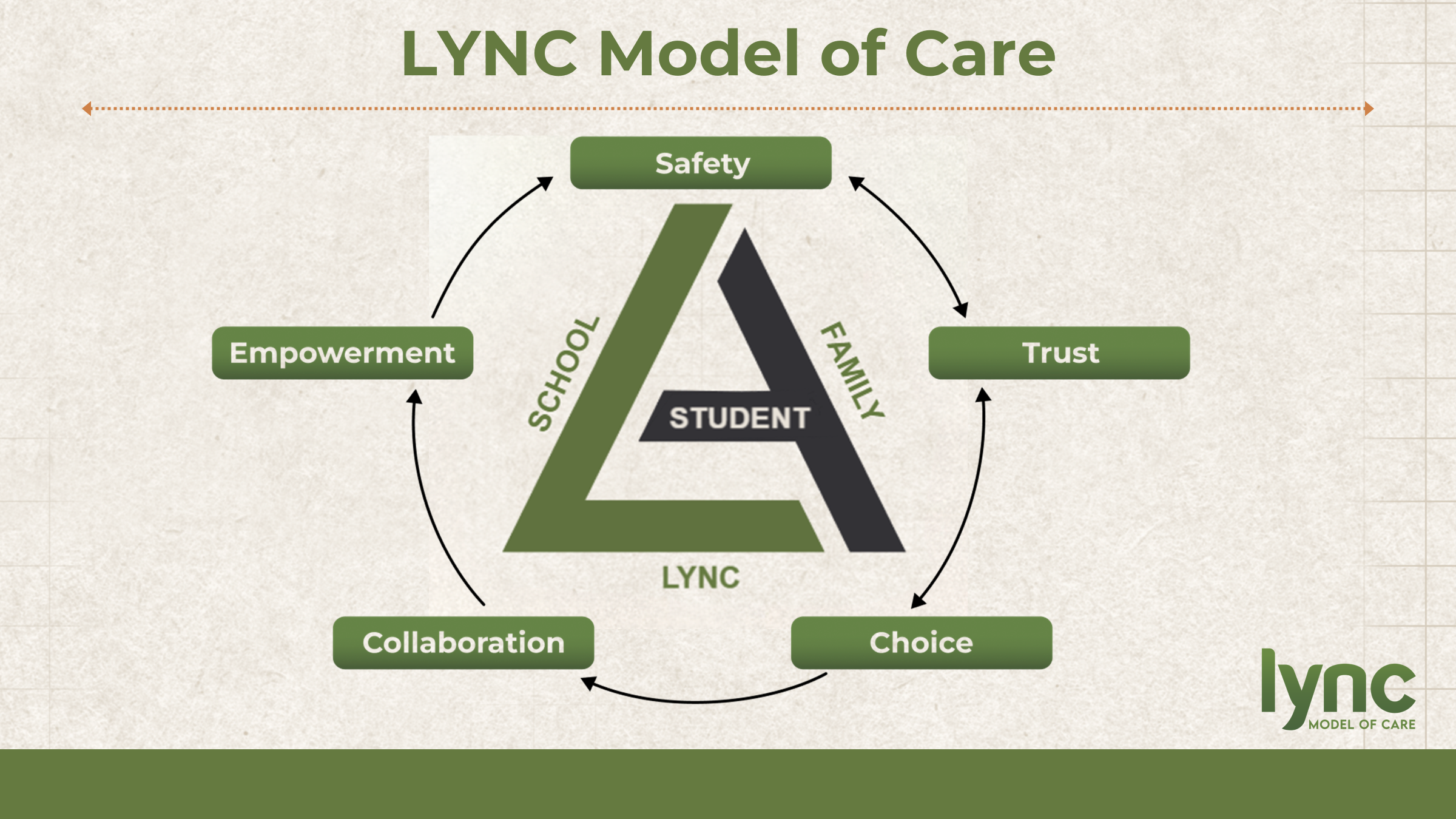The LYNC Model of Care combines the primary principles of trauma informed care with our 'triangle of support'. The triangle of support that we refer to involves the three essential sides of the student's LYNC team:
First, there is the child and family. We know that without the family's support a child's progress at LYNC will stall, or not advance as quickly as it would with the family's confidence. If the family remains unfamiliar or unclear with our program, approach, and/or philosophy still after several weeks, we feel we are failing to secure this side of the triangle. For this reason, we ask each family/caretaker to attend LYNC at least once within the first two weeks, and then again within the first six weeks of their student's attendance.
Another side of the triangle of trust is the student's team at their home school. This can include teachers, administrators, social workers, specialists, or anyone connected to the student at their school. LYNC Academy's obligation to the student's home-school team is similar to that of the family. It is crucial for our success that the school personnel understand our philosophy and approach, and feel comfortable asserting their opinions, expertise, and desired outcomes. If we have not gained the school team's confidence, again, we feel we are off the mark and we will typically reach out for a check-in meeting to gauge where we can adjust.
The third side of the triangle is of course the LYNC team. In the context of our model of care, the LYNC team's essential priority is building the strongest three-sided team possible around the student. We gauge the strength of our students' teams the same way we gauge our student's individual progress, which is through persistently referencing, teaching, and practicing the principles of trauma informed care (Safety-Trust-Choice-Collaboration-Empowerment) until the team is strong and supportive of one another for the purpose of the student's well being, and the student themselves becomes empowered.

